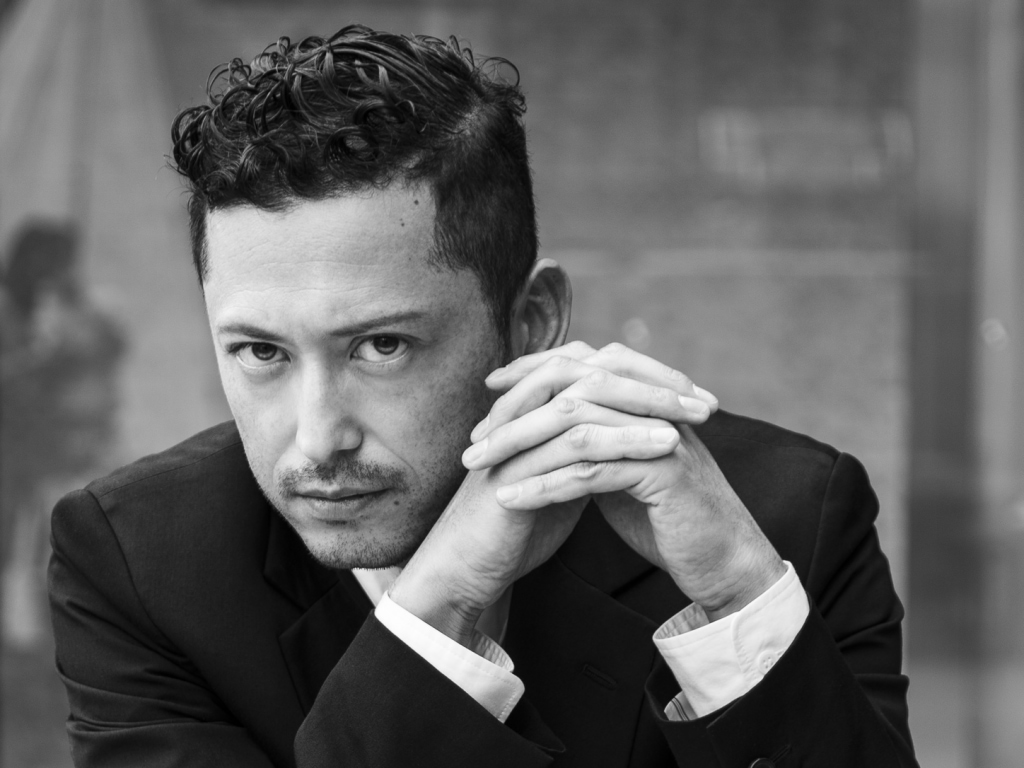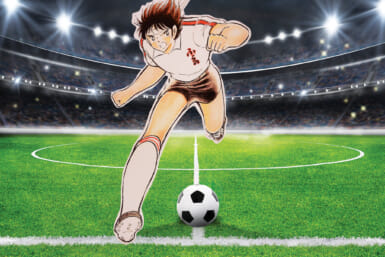“I had a complex when I was younger,” reveals actor Hiroyuki Ikeuchi during our recent interview at the Weekend Garage Tokyo café in Daikanyama. Born to a Salvadoran mother and a Japanese father, he grew up in the small seaside town of Hitachinaka in Ibaraki.
“We lived in a very rural area and there were no other children like me. It felt like people were often staring at me, which made me feel self-conscious. I tried to hide my foreignness and appear as Japanese as possible. I even threw away letters about open days at school because I didn’t want other children to see that my mother looked different.”
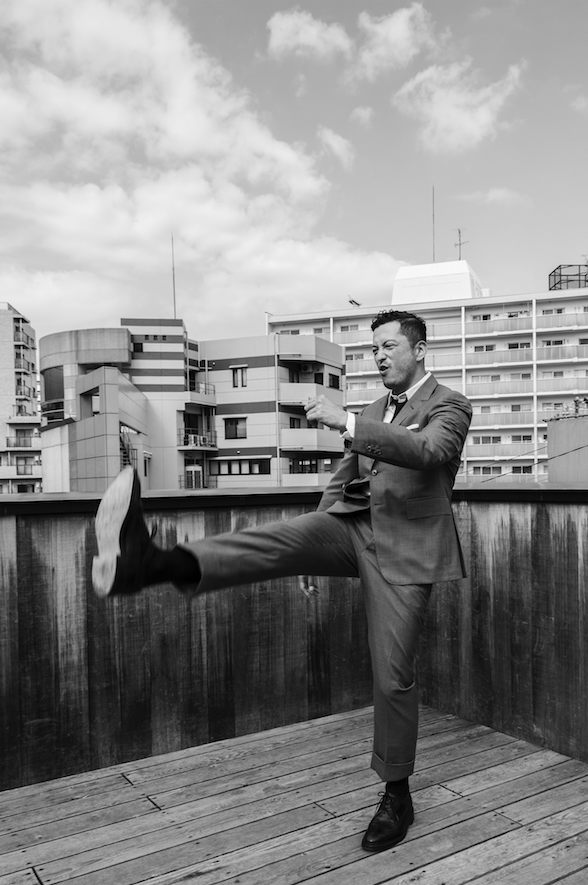
Today, however, Ikeuchi is proud of his mixed heritage. He grew to feel more comfortable with his racial identity, particularly after he was scouted for stardom as a teen thanks to his distinctive, exotic features and started working as a model in Tokyo.
“Moving to the capital opened up my eyes to a new world,” says the actor. “I was actually visiting there with my girlfriend when I was spotted at a bus stop by someone working for a major talent agency. He gave me his business card, but it felt like a strange situation. I wasn’t sure what to do. I went back to Ibaraki and discussed it with my parents who wanted to visit the office with me. Once we saw that everything was legit, I decided to go
for it.”
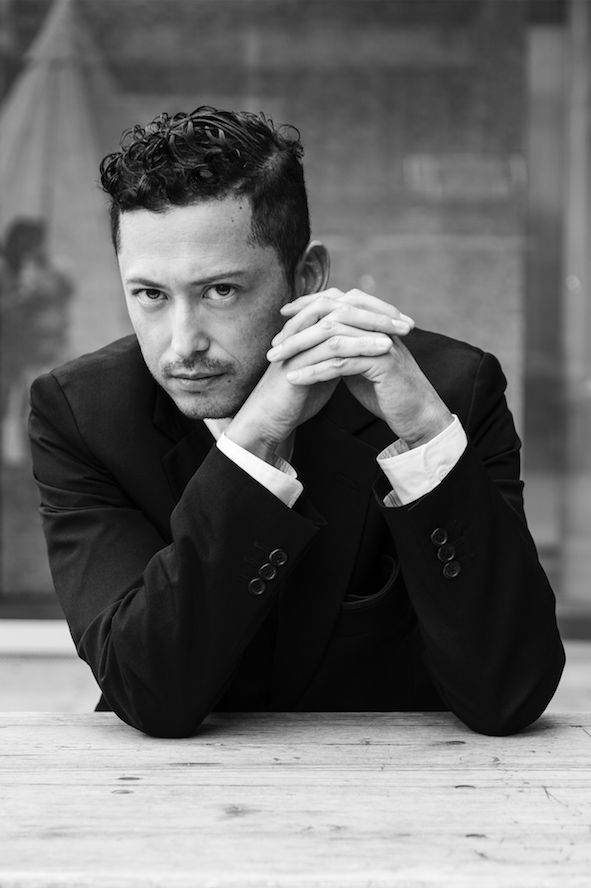
Trying to work his way up in the industry, Ikeuchi auditioned for modeling jobs while studying architecture at college. A keen traveler, he took some time off to go backpacking around Asia before making his movie debut as a ghost in Kazuko Ohmori’s 1997 baseball flick Dream Stadium. “I didn’t have any lines in the film, but nerves still got the better of me and I threw up before we started shooting,” recalls the actor.
Things really began to take off for Ikeuchi in the late ’90s when he featured in the popular TV series Great Teacher Onizuka (GTO) and bagged pivotal roles in Takashi Miike’s highly reputed yakuza film Blues Harp as well as Kiyoshi Kurosawa’s philosophical movie Charisma, which was shown at the Cannes Film Festival. In the years that followed, his reputation steadily grew.
In 2008, he appeared in Ip Man, his first ever international production. Set in Hong Kong, though shot in China, it’s an autobiographical martial arts movie based on the life of Ip Man (also known as Yip Man), the Wing Chin grandmaster and Bruce Lee’s former teacher. The title role was played by Donnie Yen, a multiple-time world wushu tournament champion, who’s most well-known as Chirrut Îmwe in Rogue One: A Star Wars Story.
“Donnie was my rival in the film,” says Ikeuchi. “His action sequences are on a different level. I felt a lot of pressure. As well as being my first time to work abroad, it was also my first full-blown martial arts movie. I went out a month before we started shooting and trained with Sammo Hung, who has been a fight choreographer for many legendary actors including Jackie Chan. It was a memorable though very intense time.”
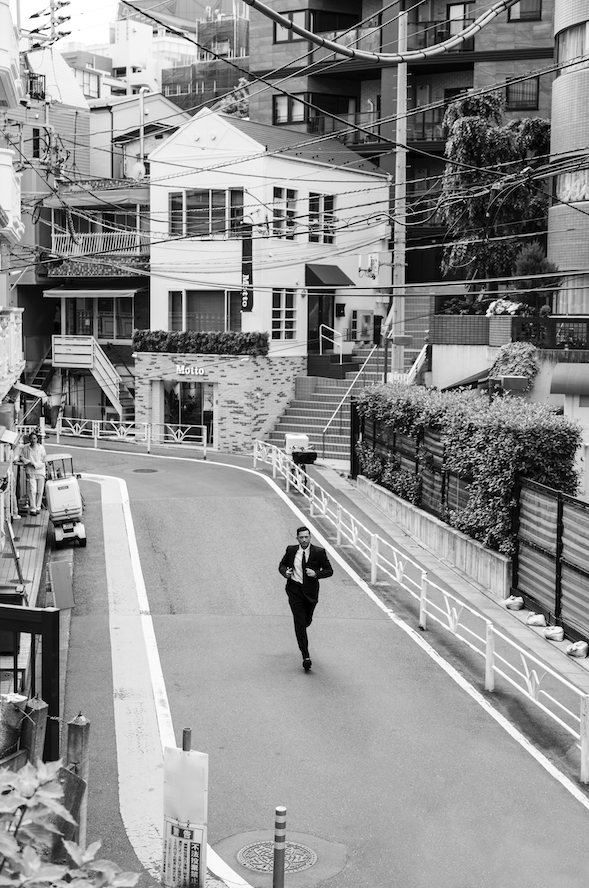
Ikeuchi later went on to appear with Jackie Chan in the Chinese action comedy Railroad Tigers about a railroad worker who leads a team of freedom fighters to oppose the Japanese during the occupation in World War II. “Of course, I’d grown up watching his movies, so it was special and at the same time quite scary to come up against him in a film,” says the 42-year-old actor. “He’s such a kind, welcoming guy who is still in amazing shape for a man in his sixties.”
After Railroad Tigers, Ikeuchi featured in the action thriller Manhunt, a Chinese-Hong Kong co-production by Mission Impossible 2 director John Woo. It’s based on Juko Nishimura’s novel, Kimi yo Fundo no Kawa o Watare.
“I enjoy doing both domestic and international films,” says Ikeuchi. “For the Chinese and Hong Kong movies I did, I was initially given scenarios from each scene rather than a proper script. You have to be a bit more flexible, whereas in Japan you have a screenplay that you must follow. Things are generally more fixed. Time on set is also longer here. Years ago, I remember working from 6am to 1am, and trying to learn lines in between. It’s not as extreme these days, but it can still be exhausting.”
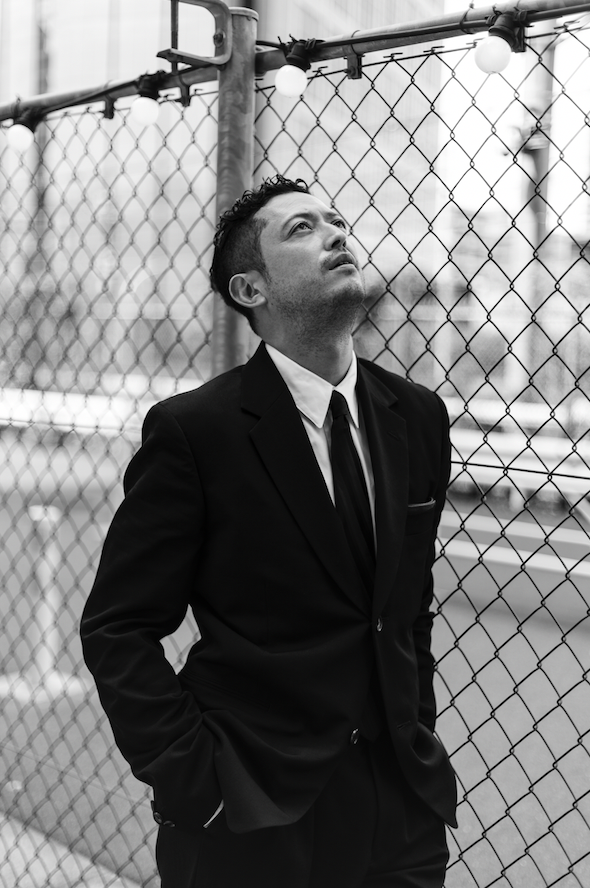
Now in his third decade in the entertainment industry, Ikeuchi continues to get cast for lead roles despite the fact he doesn’t rate himself as an actor. A black belt in judo, he’s often been chosen to play villainous characters. However, more recently he’s been cast in several comedies including the Yoshimoto Kogyo production YAUNPE! YTV, which premiered at the 11th Okinawa International Movie Festival in April, and the Hikari TV series Toubou Ryourinin Watanabe (literal meaning: The Fleeing Chef Watanabe), which will soon be available for online streaming.
“I had a lot of fun shooting both,” recalls Ikeuchi, “YAUNPE! YTV is a funny movie about four middle-aged guys, including myself, competing for the affections of a younger woman. Toubou Ryourinin Watanabe is very different, but also humorous. You get to see some delightful sites in Japan and some amazing dishes. I think its appeal is quite wide-ranging. I play the title character who is on the run from the police, suspected of murdering his wife.”
“I like to take on different kinds of roles,” continues Ikeuchi. “It doesn’t matter where they present themselves. It could be in India, Cambodia or the States. I would be happy to work anywhere. I believe it’s important not to limit myself.”
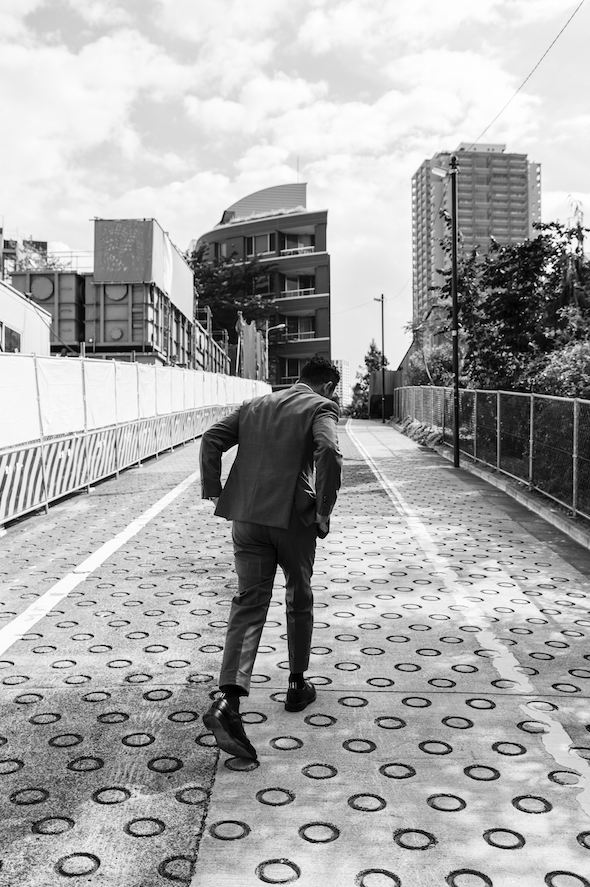
Photographs: Allan Abani
Make-up: Laurène Baudin
Stylist: Soichiro Kobayashi
Black suit: Yohji Yamamoto
Grey suit: Thom Browne
Special thanks to Weekend Garage Tokyo

